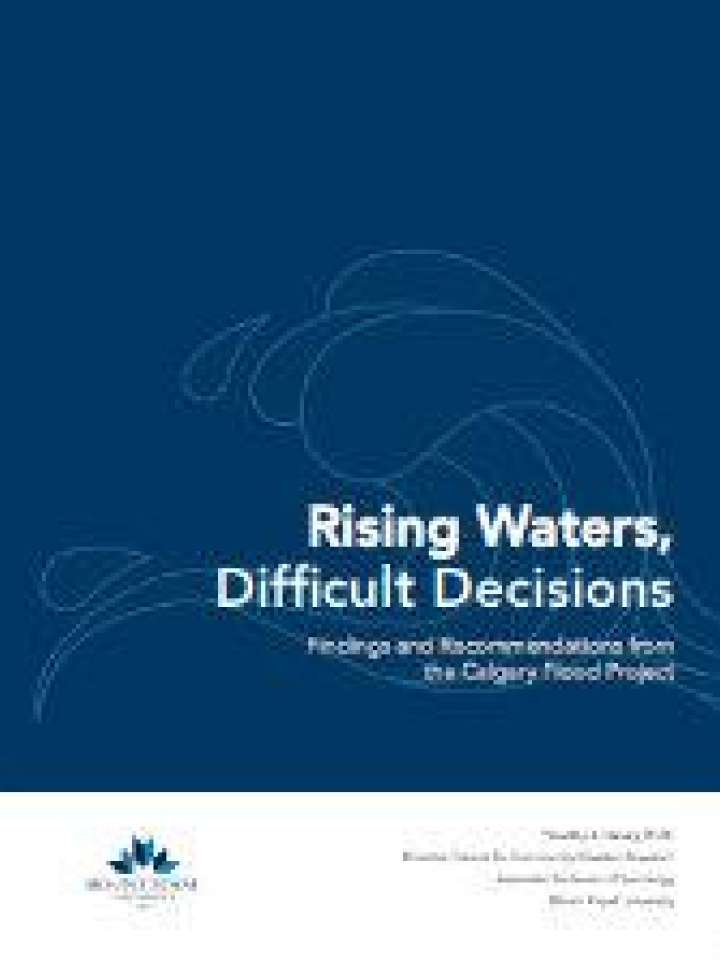Rising waters, difficult decisions: Findings and recommendations from the Calgary Flood Project
This report provides five concrete policy recommendations for municipal, provincial, and federal government officials, and policymakers on the basis of research conducted to understand the aftermath of the 2013 flood in southern Alberta, Canada.
Based upon a representative sample of Calgary residents affected by the 2013 flood, this report reveals that many Calgarians misunderstood their flood risk prior to the flood. Many residents did not hear the evacuation order, or did not believe that it applied to them, and, even among those who heard the order, a remarkable number of Calgarians failed to evacuate before the flood. This lack of risk awareness and failure to evacuate are troubling, and require action on the part of governmental, non-governmental, private sector, and university partners.
Once evacuated, the residents tended to stay with family members residing in Calgary, only rarely made use of government assistance programs for evacuees, and reported substantial economic losses related to the flood. Those whose homes flooded during the disaster remained evacuated much longer than those whose homes did not flood, incurred significant uninsured financial losses from the flood, and endured disruption to their lives as well as their spatial and social relationships.
Finally, the disaster has changed the environmental views of some residents, particularly women, by making them more concerned about and more sympathetic to environmental protection. Nonetheless, fewer than half of the affected residents believe that disasters such as the 2013 flood will become more common in the future.
Explore further
